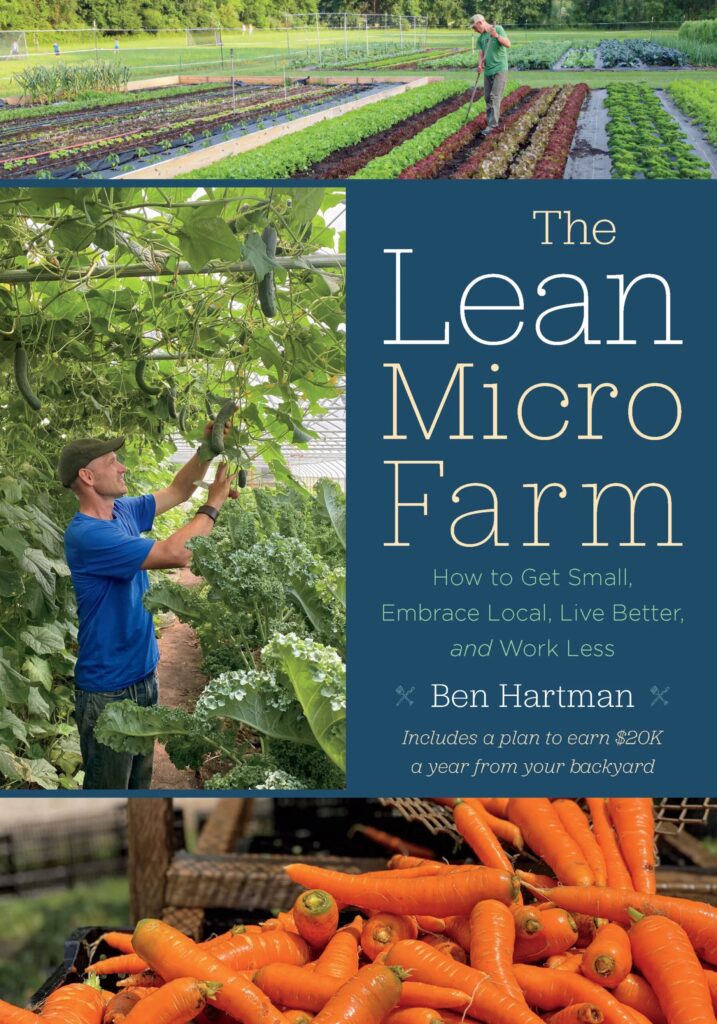
By Ben Hartman
Chelsea Green Publishing, 2023
272 pages, paperback, $34.95
Making a living by farming on just one-third of an acre, Ben Hartman demonstrates how to “scale-down” farm production to increase impact in his newest book, “The Lean Micro Farm.” A farmer, author, husband, father and community member, Hartman proves that living his values has not compromised his ability to run a viable business. Inspired by the work and lives of E. F. Schumacher and Mahatma Gandhi, Hartman models small-scale, community-centered farming that can contribute to addressing socio-economic and environmental issues, while producing high-quality food.
One part “how-to” guide for productive small-scale farming and one part philosophy lesson for running a values-based business, Hartman describes in detail how he has bucked the “go big or go home” mentality. By focusing on five principles to guide his family farming operation, Hartman is able to resist the temptation to do more. The principles he and his wife chose to guide the business include leveraging constraints, building just enough, focusing on the most vital crops and accounts, simplifying fieldwork, and localizing farm transactions.
Hartman says, “These principles help balance the life we want with the work that we are doing. They allow us to farm and live better.”
He describes in detail how staying small has allowed his farming operation to address issues as decentralized as food insecurity in his town, and as complex as global warming. Hartman gives examples of how he makes food available to low-income people in his neighborhood; provides good job opportunities; educates volunteers, interns, and people who are incarcerated; and uses no-till management strategies to prioritize soil health, increase soil carbon sequestration, reduce runoff and increase plant production.
The book gives readers a peek behind the curtain, including images of Hartman’s house and building plans, detailed management strategies for no-till growing, and even descriptions of his seven favorite farming tools. While the additional vignettes he includes about producers around the world don’t build on the “how-to” Hartman is constructing, they do demonstrate how different types of food production contribute to supporting local communities and economies, which is the heart of this farming guide.
Jennifer Wilhelm, Madbury, New Hampshire
